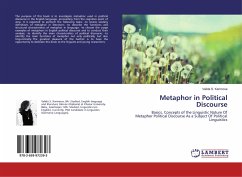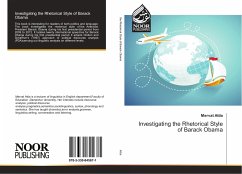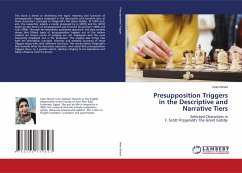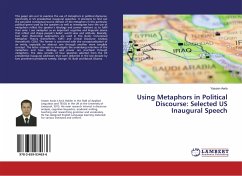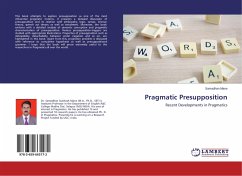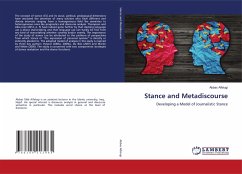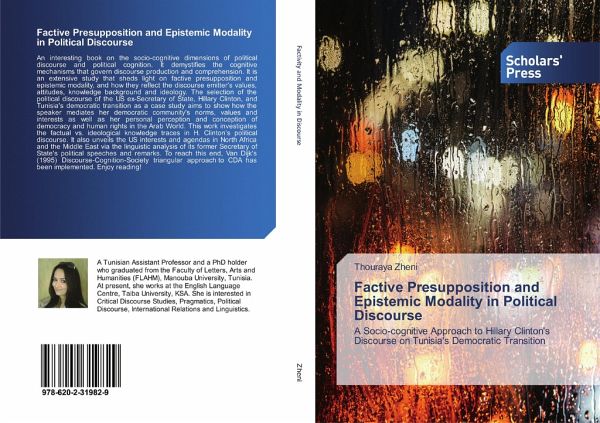
Factive Presupposition and Epistemic Modality in Political Discourse
A Socio-cognitive Approach to Hillary Clinton's Discourse on Tunisia's Democratic Transition
Versandkostenfrei!
Versandfertig in 6-10 Tagen
62,99 €
inkl. MwSt.

PAYBACK Punkte
31 °P sammeln!
An interesting book on the socio-cognitive dimensions of political discourse and political cognition. It demystifies the cognitive mechanisms that govern discourse production and comprehension. It is an extensive study that sheds light on factive presupposition and epistemic modality, and how they reflect the discourse emitter's values, attitudes, knowledge background and ideology. The selection of the political discourse of the US ex-Secretary of State, Hillary Clinton, and Tunisia's democratic transition as a case study aims to show how the speaker mediates her democratic community's norms, ...
An interesting book on the socio-cognitive dimensions of political discourse and political cognition. It demystifies the cognitive mechanisms that govern discourse production and comprehension. It is an extensive study that sheds light on factive presupposition and epistemic modality, and how they reflect the discourse emitter's values, attitudes, knowledge background and ideology. The selection of the political discourse of the US ex-Secretary of State, Hillary Clinton, and Tunisia's democratic transition as a case study aims to show how the speaker mediates her democratic community's norms, values and interests as well as her personal perception and conception of democracy and human rights in the Arab World. This work investigates the factual vs. ideological knowledge traces in H. Clinton's political discourse. It also unveils the US interests and agendas in North Africa and the Middle East via the linguistic analysis of its former Secretary of State's political speeches and remarks. To reach this end, Van Dijk's (1995) Discourse-Cognition-Society triangular approach to CDA has been implemented. Enjoy reading!




